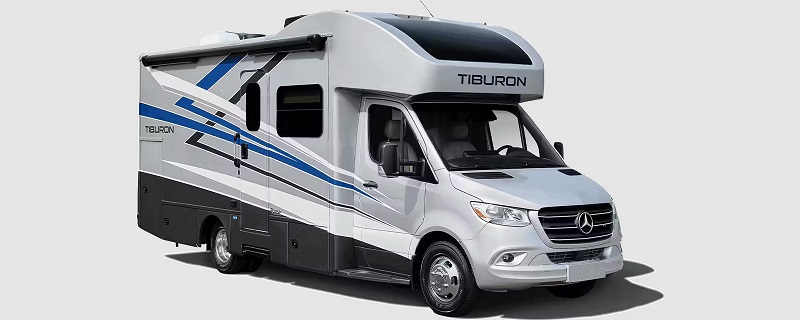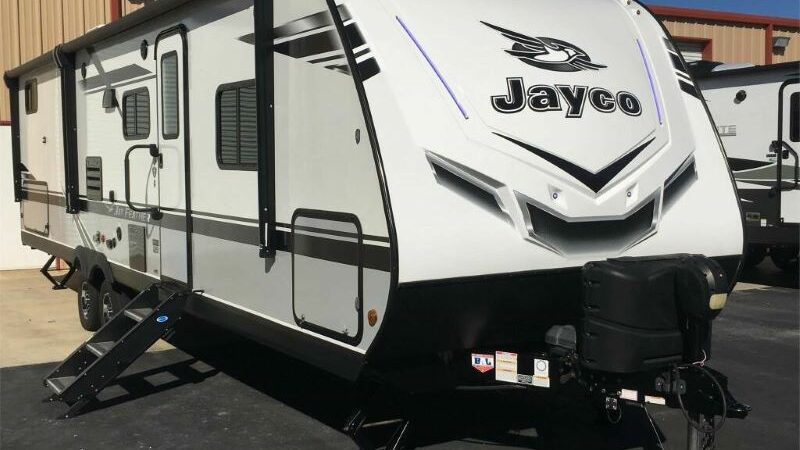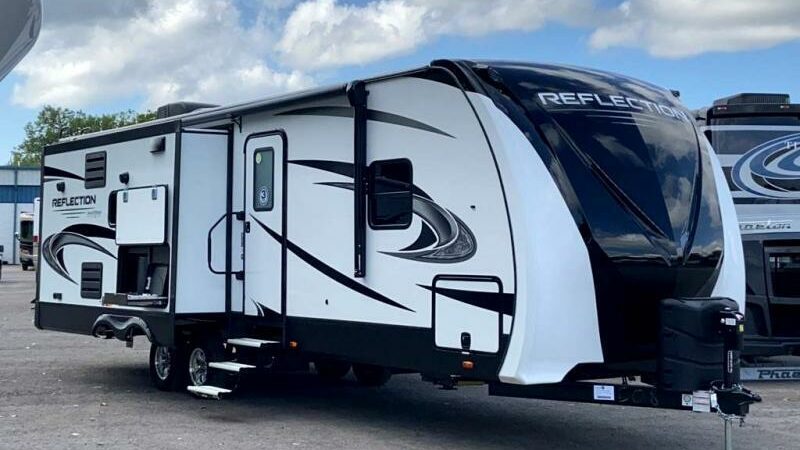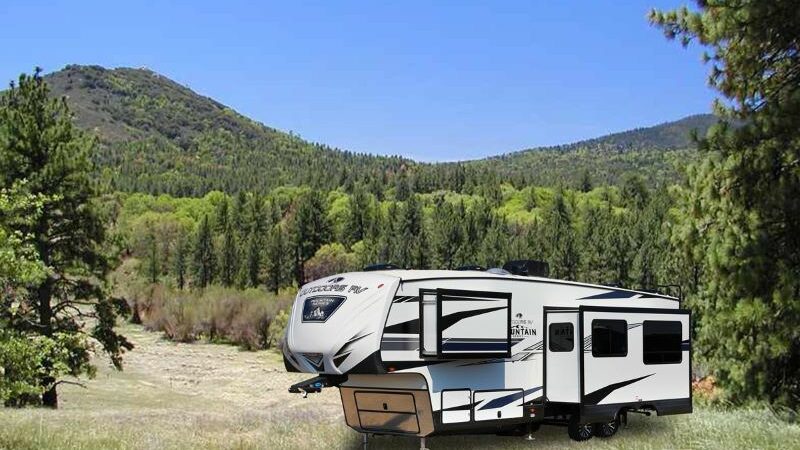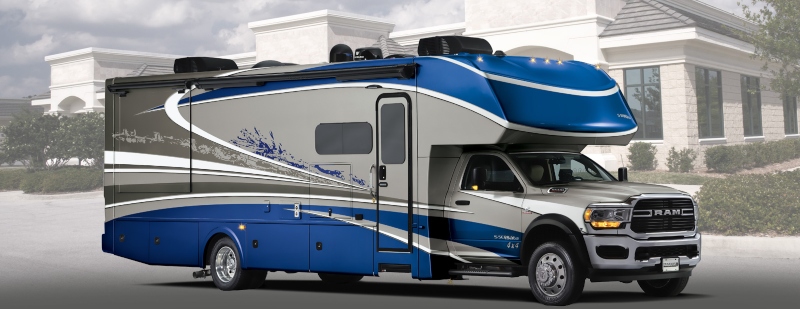Is RV Travel Insurance Worth the Money?
Thanks for your support! If you make a purchase using our links in this article, we may make a commission. And, as an Amazon Associate, I earn from qualifying purchases. See the full disclosure here.
Insurance companies created travel insurance years ago. Then, as the RV Boom ramped up in concert with the COVID-19 Pandemic, insurance providers realized RVers needed an RV travel insurance product to cover vacation losses due to unforeseen circumstances.
In this discussion, we show you how RV travel insurance works, how it’s different than existing RV insurance coverage, and when it’s a good idea to apply for it.
You’ll find that it’s more affordable than you think and can help you recover financial losses from weekend getaways to that lifetime trip.
What is RV Travel Insurance?

RV travel insurance is a policy that covers the expenses of a specific trip you’ve planned ahead of time or if your trip is cut short due to significant events. You can receive up to 100% of all pre-paid expenses like campground costs, planned event tickets, and other covered expenses if you have RV trip scenarios like:
- Trip cancellation for any reason
- Trip interruption for work or other reasons
- Travel delay
- Emergency medical reasons
- Emergency medical evacuation
Insurance carriers created RV travel insurance from hotel/cruise traditional trip policies. Insurance companies saw how RVers suffered from significant losses when their vacation plans didn’t work out and found a way to help cover that loss.
In “insurance-speak,” cancellation means you can’t go on the trip at any point. Interruption refers to cutting the RV trip short due to unforeseen medical, work-related, or other issues. Travel delay occurs when you have to leave for your trip later than expected.
Is RV Travel Insurance a Good Idea?

RV travel insurance is a good idea for virtually any RV trip. You can expect to reserve a campsite for 1-2 years from now at the most popular RV destination campgrounds. No one knows what can happen that far in advance. That’s where RV travel insurance comes in.
You could have the campground, attraction tickets, and other expenses prepaid between now and then. Then about a month before your trip, something unexpected could happen; something positive like the birth of a new baby or something negative like a job loss.
Since you were wise enough to purchase that RV travel insurance policy for under a few hundred dollars, you contact the insurance company to start the claim. Their representative walks you through the process, who to contact, how to fill out the forms, and everything else.
RV trip insurance works for individual vacations. Of course, you could buy a policy for every RV vacation trip you take, but only you can decide if it’s worth the expense. RV travel insurance aims to recoup the financial losses you’ve incurred before the trip due to cancellation, interruption, or delay.
How is RV Emergency Expense Coverage Different From RV Travel Insurance?
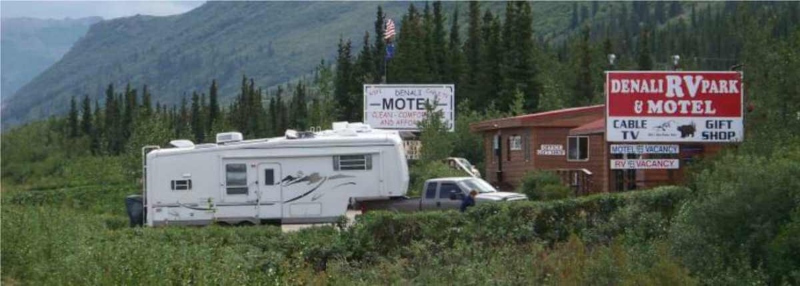
Most RV insurance policies come with Emergency Expense Coverage. If you’re in an accident while traveling, this feature gives you money for hotels and transportation to get back home while your RV gets repaired.
In this scenario, your primary RV insurance carrier covers you since you were in an accident. They’ll cover the cost of repairing your RV and give you money to rent a car and drive home. Of course, if someone were injured, they’d cover that as well.
Hopefully, the injury isn’t too serious, and you can recover your clothes and other personal items.
Your primary RV insurance carrier won’t cover your prepaid vacation expenses like the campsite or attraction tickets. It’s like asking your homeowner’s insurance company to cover your cruise or hotel vacation.
This is where RV travel insurance comes in handy. Once you know you and everyone in your family are okay, you’d contact the RV trip insurance carrier and start the process to recover those losses.
How is RV Travel Insurance Different Than Other Policies?

We showed you how Emergency Expense Coverage is different than RV travel insurance. To better understand how RV trip insurance works, we’ll show you how this insurance coverage differs from other RV policies.
1. Factory Warranties

RV manufacturers offer factory warranties on their motorhomes and travel trailers. These policies focus on components that break or don’t work correctly due to an installation or stress issue. The RV company repairs or replaces the part at no cost to the owner.
2. Extended Warranties

RV Extended Warranties are great for coaches no longer covered by factory warranties. However, 80% of all RVs will need some type of significant repair by their fifth year due to general wear and tear. An RV extended warranty covers big-ticket items like motorhome automotive problems and slide-out motor replacements.
3. RV Insurance

Every RVer must have a primary RV insurance policy. It’s like a homeowner’s and auto policy wrapped into one. Like all primary insurance coverage, RV insurance covers damage, liability, and medical due to accidents or injuries. Whether traveling on the road or at a campsite, this coverage protects you and your RV but not any trip-related costs.
4. RV Renter’s Insurance
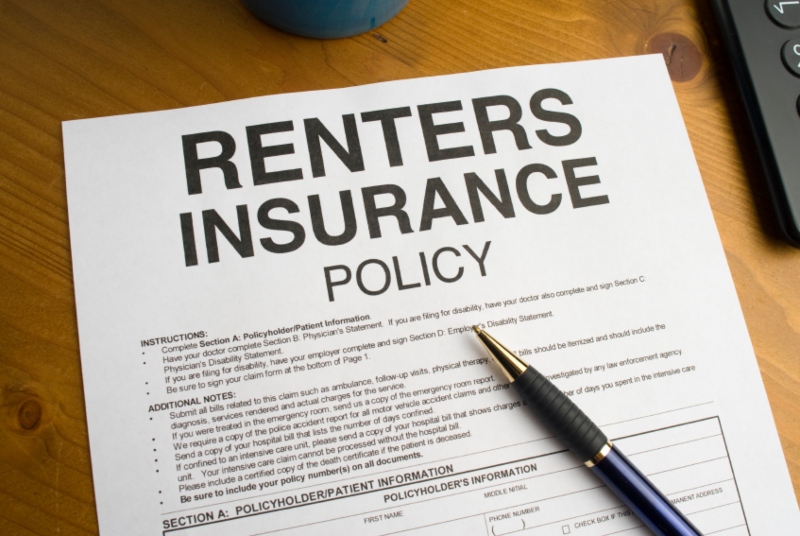
Also known as Third-Party liability, RV renters insurance covers those who rent your RV and their property. As the coach’s owner, your primary RV insurance should cover you and the damage to your rig.
Renters need to protect themselves, their families, and their property in case of an accident. Therefore, renters can also purchase RV travel insurance for trip-related costs.
5. Road Trip Insurance/ Driveway to Driveway Coverage

If you’re taking a road trip in your passenger vehicle, there are road trip insurance policies (A.K.A. Driveway to Driveway Coverage) that act like a travel insurance policy. This policy covers travel expenses like hotels, food, and other essentials while traveling from one destination to the other.
Road trip insurance policies are similar to traditional and RV travel insurance products for covering travel costs like hotels and other essentials. Yet motorhomes and travel trailers aren’t eligible for this coverage since an RV has different needs than a car, SUV, truck, or passenger van.
RVBlogger Tip for Camper Vans: We don’t recommend Van Lifers trying to apply for road trip insurance for their van conversion. Road trip insurance covers the expenses while traveling from one place to another but doesn’t cover vehicles with living spaces.
If something were to happen, the insurance company wouldn’t cover your camper van components. Also, the insurance company would void the policy since your camper van is an RV, not a passenger van.
6. RV Membership Club Assistance Programs

Some RV Clubs offer RV travel insurance benefits. For example, the Family Motor Coach Association (FMCA) FMCAssist program is a medical evacuation and repatriation coverage provided to its members domestically and internationally.
RV travel insurance usually offers this benefit. When researching RV trip insurance, if you belong to an RV discount club with travel insurance benefits, read up on how their program works. That way, you can determine which one offers the best advantage for you.
7. Traditional Travel Insurance

Traditional travel insurance has been around for decades. People have used this coverage for flight and hotel or cruise vacations. Before 2020, insurance companies recognized the high costs involved with these types of trips. Travel agents even worked with insurance companies creating special packages that included discounted insurance prices.
As mainstream America jumped back into the RV lifestyle, some insurance companies realized that there was an underserved vacation market. From their standpoint, RV vacations were generally less expensive, but some carriers designed RV travel insurance products that benefited them and their customers.
What Does RV Travel Insurance Cost?

RV travel insurance costs are affordable. People buy these policies once for specific vacations. Online RV travel insurance free quote finders will ask you for the following information:
- Destination Country
- Departure Date
- Return Date
- Number of Travelers
- Traveler Ages
- Country Citizenship
- State Residency
- Total Cost of Trip to Insure
- Initial Trip Payments Already Made (Deposits)
- Email Address
Based on this information, you’ll receive initial quotes that could average between $100-$200 a week. These initial quotes can change due to several reasons. As you go through the enrollment process, make sure you read everything and understand everything about the policy.
Like any insurance policy, you want to know how you’re covered and what’s not covered. Ensure you know the various deadlines and the coverage differences between cancellation, interruption, and delay circumstances. In other words, don’t make assumptions: the more you know about your policy, the better experience you’ll have if you need to use it.
Final Thoughts on RV Travel Insurance

The costs of an RV vacation have increased dramatically during the Remote Period’s RV Boom. Most of the new campgrounds have high overnight fees.
In addition, amusement parks, tourist attractions, and even U.S. National Parks have raised their prices significantly. Those costs can melt a credit card even before you’ve lifted your RV jacks.
Before RV travel insurance, if some type of life event occurred that ruined an RV trip, people might have been able to recoup some of those costs, but it was usually low.
Now that RV trip insurance is available, the financial impact of a lost RV vacation isn’t too impactful. Once that check comes from the insurance company, you could use it for an even better RV trip.
1. The Wrong RV Rental Insurance Leaves You Exposed
2. Does Insurance Cover RV Windshield Replacement?
3. How Much Does RV Insurance Cost?
4. Cheapest States to Buy and Register an RV
5. How to Check for RV and Travel Trailer Recalls
About the Author
About the Author:
Although he’s from Motown, Brian Newman is a legacy RVer that grew up on I-75. He, his wife, and two working-class fur babies have enjoyed the full-time RV lifestyle since 2017.
Like John Madden, he hasn’t “worked” in years because he gets to write about his passion. When he’s not working, he supports his daughter’s dog rescue efforts and disability causes.

Source: https://rvblogger.com/blog/rv-travel-insurance-worth-the-money/


